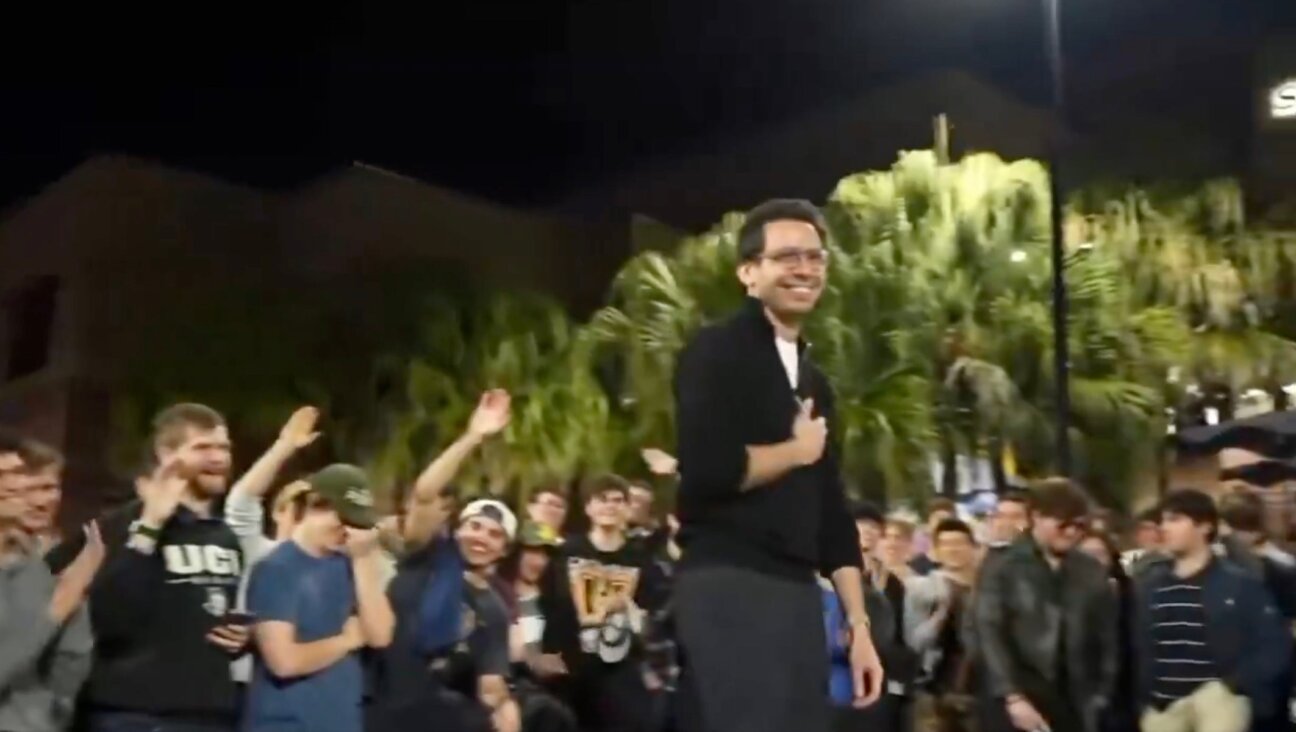Shelter From the Storm
“It is a joy to live in one’s own house.”
—Yerushalami Talmud,
Moed Katan, 2.4
Given that the damage unleashed by Hurricane Katrina and the subsequent breach of the levees was of biblical proportions, it should come as no surprise that the storm gave all New Orleanians an entree into the Jewish historical experience. Though as we now approach the third Sukkot since Katrina and far too many people are still living in Federal Emergency Management Agency trailers, the 21st-century equivalent of temporary huts, it is way past time to leave our sukkahs and claim our homes.
Two years ago, with only a few days’ notice, the storm forced all the residents to leave their homes and to wander — some for days, some for weeks stretching into months — into an exile that even now continues for many. This diaspora stretches across the United States, and wherever New Orleanians settled, they have re-created their culture. On the second anniversary of Katrina, the local newspaper profiled an expatriate who opened a Creole restaurant in Chattanooga, Tenn., and a preacher who founded a church in suburban Atlanta with the rhythms of New Orleans; our musicians are spreading the gospel of New Orleans jazz throughout the country.
In another striking parallel, New Orleanians are now the people of the story, making almost a cult of remembrance. Enter into a conversation on any subject with someone who was touched by the storm, and I wager that it will be only a few minutes until the K-word comes up. Just the other day I was in a coffee shop and overheard several women talk about work-related matters and then launch into a retelling of their two-year-old evacuation stories. Such conversations are commonplace.
And everyone in New Orleans — rich and poor, black and white, Jew and non-Jew — now understands the experience of the wandering Jews thousands of years ago. For everyone has had to live in sukkahs of a sort, temporary homes stripped of familiar possessions. Living in those sukkahs, we have learned to make do with less; and in the process, we have learned to differentiate wants from needs. We have gained a heightened awareness of the fragility of life and the impermanence of our possessions. We have learned the value of simplicity and that true happiness comes not from material goods but from the love of and connection to family and friends.
All that has been for the good.
But for thousands along the Gulf Coast, the Sukkot experience has lasted not eight days but longer than two years. It has grown very old.
Now it is time for the rest of the country to learn another lesson of Sukkot: that it is a God-given right to live in decent housing, and that we who enjoy that right have the responsibility to ensure that everyone else can, as well. Living in a sukkah reminds us not only that many live in vulnerable and flimsy dwellings, but also that we are commanded to correct that inequity through tzedakah.
In 5768, let us begin to fulfill that responsibility in New Orleans.
Gail Naron Chalew writes, edits and helps in the rebuilding of New Orleans.














